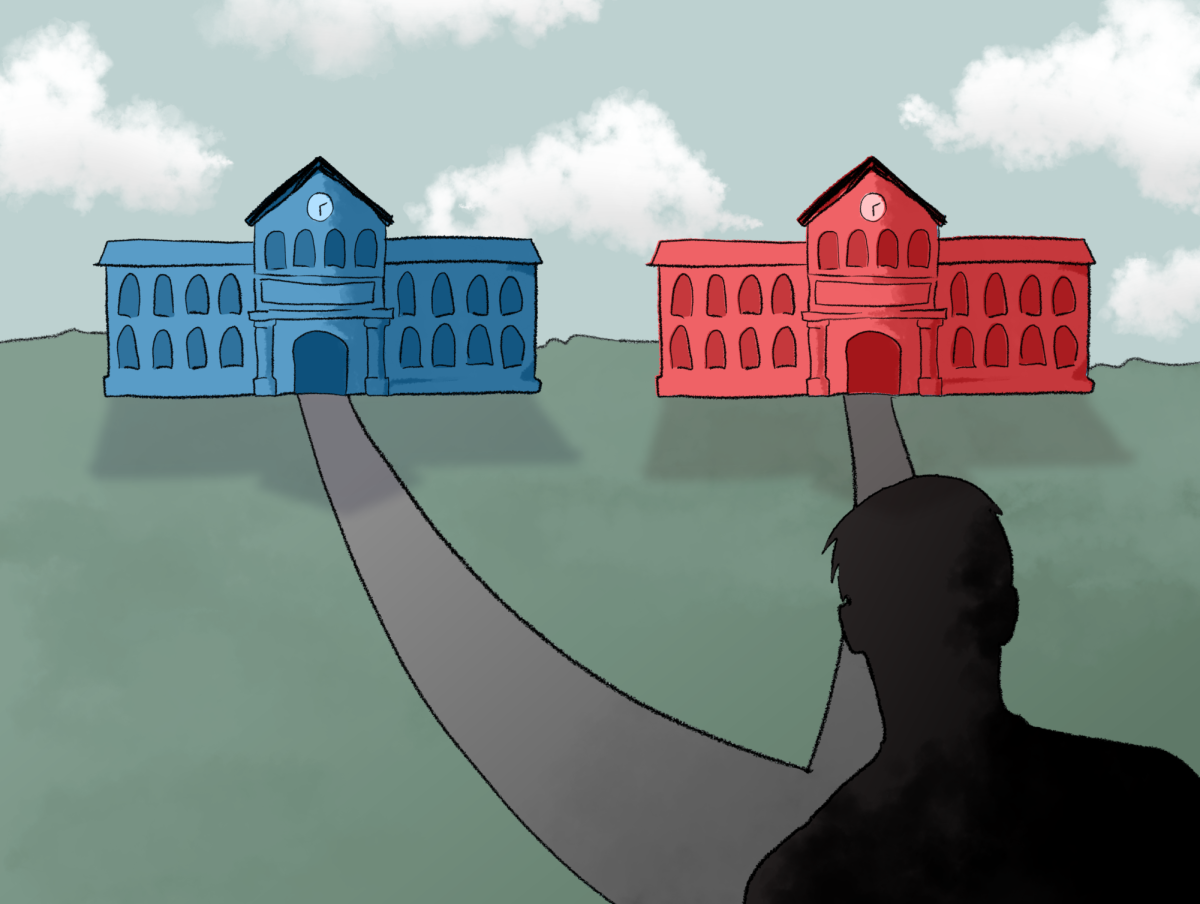With a wave of Early Decision and Early Action university acceptances approaching, students face the dreadful period of indecision and decision. Group chats buzz with acceptance updates, parents push for pro and con lists and friends exchange expectations of the novelty of dorm life and newfound independence. However, as excitement builds, an underlying question lingers: will this college feel like home for the next four years?
When we think about choosing a college, we’re often told to prioritize facets like rankings, campus culture, class sizes, majors offered and proximity to home. However, while these are all valid factors, there’s a critical piece missing from this conversation: the policies and political climate of the state where the university is located.
Over the next four years, President-Elect Donald Trump and his administration plan to implement many policies that may change the nation significantly. Trump has proposed to sue private universities and dismantle the Department of Education, calling the federal funding to schools a “waste of taxpayer money.” Although it may be unlikely that he will dismantle the Department according to Ted Mitchell, president of American Council on Education, Trump’s intention ultimately reflects his stance on the issue and possible future national developments.
He has also vocalized his opposition towards the Public Service Loan Forgiveness program — a program that forgives student debt 10 years after repayment for full-time government employees such as eligible professors — which is essential for some students’ financial situations post-university and will negatively affect the lives of less fortunate students if removed.
Additionally, private school students may not have a stable academic life if the school is simultaneously being sued, as money goes towards legal pursuits and takes away from the funding of crucial school activities. Students must take these policies into account when deciding on a university: it directly affects their comfortability and transition into college life.
Education is not the only issue affected — there are numerous new policies and future proposals with more sweeping repercussions — and even healthcare itself isn’t immune to political interference. Notably, the Trump administration gives states the right to decide the legality of abortion, which comes in the midst of growing controversy surrounding abortion laws. While some states leave abortion accessible, others, primarily in the southeast such as Alabama and Tennessee, have placed total bans on abortion, deeming it illegal to receive one at any stage of pregnancy.
With the promise of such laws, students should be vigilant when applying to colleges, especially if these laws pose a concern to their future well-being. Choosing to live in the southeastern part of the U.S. after spending time in a heavily blue state that has no limitations on abortion can be a significant jump for many, as some may feel as though they’ve been deprived of a layer of protection. These policies are important to consider when deciding where to apply to college, especially for women, as it directly affects their livelihood.
Along with these education laws, Trump aims to cut federal funding for schools teaching “radical gender ideology,” and voices his discomfort with the LGBTQ community during his rallies. His goal of preventing K-12 schools from openly discussing gender and sexuality may foster feelings of unease among members of the LGBTQ community as they are no longer able to have a discussion about their identity. The constraint on open conversations regarding gender expression can also limit people from being able to understand peoples’ perspectives and identities, making communities less welcoming for those who identify as LGBTQ+ leading to an unsafe environment, especially in red states.
These aren’t abstract political battles — they’re realities that will shape our day-to-day lives in college. Attending college in a state with restrictive policies might mean stress over rights to healthcare, individual safety or rights. Choosing the right state with policies that are inclusive and supportive to you as an individual can allow you to focus on what really matters — your education, personal growth and career path.
It’s tempting to think these issues don’t apply to us in California, where progressive policies often shield us from the more extreme changes happening nationwide. However, the inevitable truth is that many of us will leave this state for college or work. Even for those who stay, federal decisions and trends in other states affect us all. Whether through shifts in funding, the national job market or the broader cultural climate, no state exists in isolation.
This isn’t to say that we shouldn’t explore opportunities in regions different from our own or shy away from new experiences. Growth often comes from stepping out of one’s comfort zone. But the key is doing so with open eyes and careful consideration. By understanding the policies and cultural climate of a state, we can better prepare for the challenges we might face by ensuring we’re making an informed choice about our future.
So as ED and EA results begin to roll in and the whirlwind of choices looms ahead, take a moment to think beyond the surface. Picture not just the lecture halls and dorm rooms, but the policies, protections and possibilities that will impact your college years. Because ultimately, it’s paramount to choose a college that won’t just be where you’ll study — it should be where you’ll thrive.








